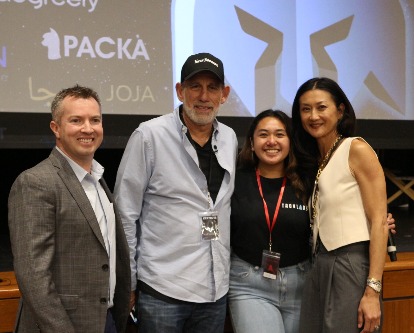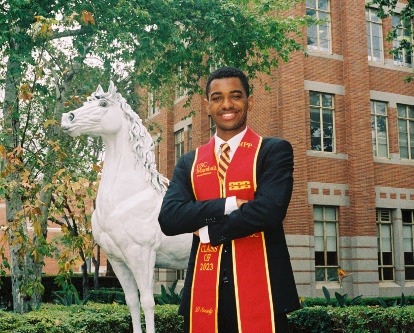
When Carmen Nava retired in 2017 after more than 30 years as an executive with AT&T, the Marshall alumna was eager to give back to her alma mater. Already active with the Corporate Advisory Board of USC’s Latino Alumni Association, she was named a USC Trustee in 2017 and in 2020 joined the USC Marshall Board of Councilors as Chair.
Nava will be speaking to students about women in the boardroom for Marshall’s International Women’s Day event, Friday, March 19. In honor of Women’s History Month, Nava answered a few questions about the challenges still facing women leaders today, what young women should look for when joining a firm, and her Marshall memories
1. From your vantage point as a recently retired senior executive, what is preventing more women from reaching the C-suite?
CN: We all know that, historically, men have disproportionately held positions of power. While women are making great strides, we still don’t have full equity in the top jobs. According to McKinsey, women now make up 21% of C-suite positions in corporate America, up from 17% in 2015. And of the Fortune 500 CEOs, only 37 are women, or 7.4%. And this is an all-time high.
There are achievements to celebrate, however. This month, Jane Fraser will take the helm as the CEO of Citibank, the third largest bank in America. And recently Mellody Hobson became the first woman—and first Black woman—to chair the Board of Directors at Starbucks.
This is positive forward momentum. However, we also recognize that on our current trajectory, the path to full equity will be slow.
2. As you look back at your career, what were some of your most pivotal personal decisions?
CN: The most pivotal decision was actually the one I made before I took my first full-time job. I knew that I wanted to be successful, and I knew that I was willing to make whatever sacrifices would be necessary to advance in the organization. When I joined Pacific Bell, I was single, and I was hired into a fast-track leadership program which required me to be willing to relocate. When my husband proposed to me a few years later, he said “Will you marry me?” and I said, “Are you mobile?” Not very romantic, but the ambition that my partner and I shared is what brought us together and is what has kept us together.
3. You entered AT&T (then Pacific Bell) right out of college and rose through the ranks. What advice would you give young business students—in particular young women of color—hoping for a similar trajectory?
CN: The landscape for women interested in career advancement is very different today than it was back when I graduated USC. Before, you could easily advance to management without a master’s degree. Today, that is usually not the case. That’s why it’s incredibly encouraging to see so many women in our MBA program at Marshall and at other graduate programs at USC.
4. Tell us about your memories of being a student at USC Marshall. Can you point to a class or sequence of classes at Marshall that really helped you grow into an executive?
CN: I have many fond memories of my time at USC and at Marshall. I remember starting my career feeling very prepared given the wide spectrum of coursework from finance to accounting to organizational behavior and business law. My USC education taught me to see the big picture and prepared me for all dimensions of a career in business.
5. You grew up in Los Angeles and were a first-generation college student. How did you choose USC and what inspiration did your family provide?
CN: USC was my first choice. I fell in love with the campus after my first visit. My parents took a second mortgage on their home to help pay for my education.




